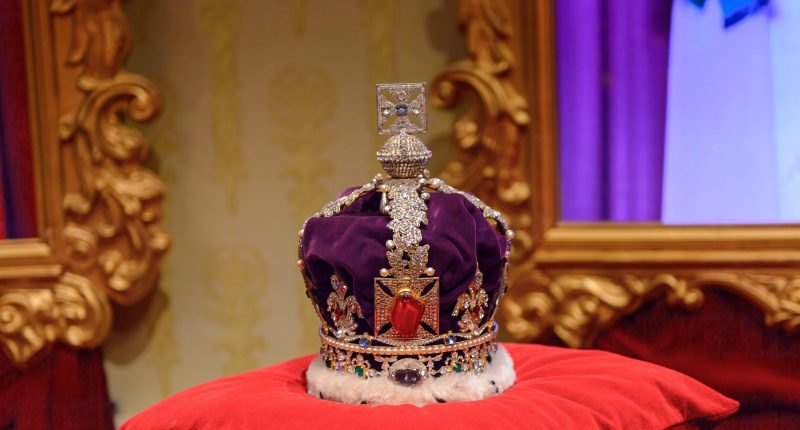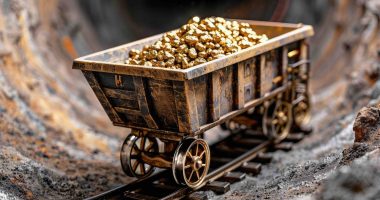Growing up in South Africa it seemed inconceivable that Anglo American, a mining colossus at its zenith would – within little over a generation – find itself battling extinction in the crosshairs of a superior takeover rival.
The all-powerful Anglo American Corporation is synonymous with the now divested Oppenheimer family, who also controlled De Beers and 90% of the world’s diamond trade during a time when Johannesburg was known as the ‘City of Gold’. Anglo, then the world’s biggest miner of the metal, was said to own South Africa and in reality they virtually did. Holding a staggering 60% of the market cap value of all companies trading on the Johannesburg Stock Exchange and accounting for 25% of the country’s GDP, Anglo was considered too big to fail.
Only South African Breweries, which rose to become the biggest brewing company in the world in 2002 after acquiring Miller Breweries, belonged in the same ballpark as Anglo, which represented to South Africa what Toyota is to Japan and Samsung to South Korea.
At its peak the company boasted a global workforce of 135,000 operating in 145 countries. In South Africa its tentacles stretched into every sector of society. The country only began televised broadcasts in 1976, due to the ruling, apartheid-era National Party’s aversion to the medium. Fittingly, the first popular, locally produced TV series was called “The Villagers” and was based on life in a typical Anglo mining town.
Mining’s impact on the South African economic landscape can only be appreciated at high altitude flying between Johannesburg and Cape Town, with mine tailings visible for hundreds of kilometres, literally up to ‘The Great Hole’ of Kimberley, where it all began with the discovery of diamonds in the late 19th century that culminated in two Anglo Boer wars which, up until 1919, featured the biggest battles in the history of humankind.
Kimberley’s most profound legacy was created with the arrival of Cecil John Rhodes, a sickly 16-year-old, to the docks of Cape Town harbour. Rhodes, an imperialist harbouring visions of a British Empire stretching from Cape-to-Cairo, would create wealth comparable to that of Bill Gates’ more than a century later on an inflation adjusted basis.
Rhodes, who would later have a country, Rhodesia, named after him died single and without children at the comparatively young age of 48 and left his fortune to the Rhodes Scholarship trust – which has subsequently put 5000 talented scholars into higher education including Bill Clinton and three Australian prime ministers; Bob Hawke, Tony Abbott and Malcolm Turnbull. All of these political luminaries went to Oxford University where Rhodes’ statue has to date survived calls for its removal due to his colonialist ideals that expanded the British Empire by 450,000 square miles during his lifetime.
Anglo American was formed 15-years after Rhodes’ death by Sir Ernest Oppenheimer, who acquired De Beers in 1926 and had a tough path to pursue in Rhodes’ mining magnate footsteps. On the death of Ernest in 1957, his son Harry, who was born in Kimberley, took the reins of both companies in the same year that Anglo became the world’s biggest gold producer.
An inestimable number of people worked for South African companies affiliated to Anglo, two of which were the largest English newspaper groups in the country, The Argus and South African Associated Newspapers.
I worked as a reporter for newspapers at both companies at a time when journalism flourished in South Africa as Anglo had more lucrative pickings to pursue and weren’t too pernickety pushing profits out of comparatively minor newspapers valued more as strategic assets than cash cows. Mine strike stories never featured prominently in Anglo-owned papers, but liberal editors and journalists, operating with few feet on the budget brakes, thrived largely left untouched to pursue anti-apartheid agendas at a time when the Rand Daily Mail famously hired a private plane to send a team of two photographers and five reporters to the Lainsburg floods in 1981.
The Oppenheimers were old money who never featured in glossy lifestyle magazines or on luxury yachts and seldom gave interviews. Elon Musk, who was also born and grew up in South Africa, probably generates more headlines in a month today than Harry Oppenheimer did in his lifetime.
And yet Anglo and the Oppenheimers were everywhere, on plaques expressing appreciation for beautiful sculptures and statues given to cities and towns and showing gratitude for donations that helped build schools, hospitals, university faculties and sports facilities.
Harry Oppenheimer, who financed and helped launch the anti-apartheid Progressive Federal Party opposition party (PFP) – later dubbed the political haven of emigration inclined “Packing for Perth” South Africans – spent 10-years in opposition benches in parliament and was openly contemptuous of the ruling National Party who returned the hostility in kind. Despite this animosity he survived the apartheid era lasting four decades as the wealthiest South African in the world due to the treasured status of Anglo and De Beers’ as the highest paying tax entity in the country and a major source of foreign revenue.
The stain on Oppenheimer’s legacy, nevertheless, is that he built his empire on the literal back of cheap black labour, often sourced from neighbouring countries such as Mozambique and Botswana – in the process creating single-parent communities in large swathes of Southern Africa. Male mine labourers and absent fathers spent most of their time working far from home with little annual leave, living in cramped dormitories more synonymous with the industrial revolution of Charles Dickens’ Victorian England than the luxury of modern FIFO campsites.
Oppenheimer died in 2000 at the age of 91 and almost outlived the National Party, whose demise came five-years later. The Queen attended his memorial service in London, perhaps to show her appreciation for the Cullinan Diamond, the biggest diamond ever discovered which was donated by South Africa and now adorns the British crown and the sovereign’s sceptre.
Whether BHP succeeds in its multi-billion-dollar takeover bid for Anglo is almost irrelevant. Takeovers, amalgamations and acquisitions almost inevitably end up in restructures and rebranding. With its share price trawling historic lows, Anglo American’s days seem numbered, a corporate legacy soon to be carved up and consigned to the shifting sands of history.
Having grown up under its all-pervasive influence, it’s hard to imagine a world without an ubiquitous mining company doing business called Anglo American.








